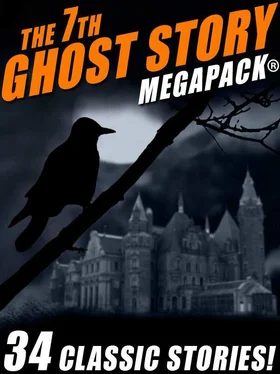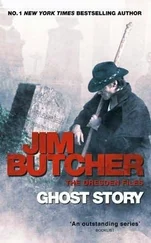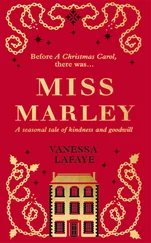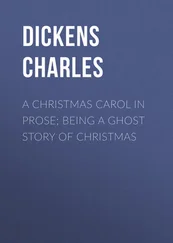There it was again, that strange blankness in Mother’s eyes, the curious cold hardening of her face.
“I hope you are not going to be difficult, Teresa,” Mother said.
The remark seemed so irrational, so utterly unrelated to anything that had been said or to any intention that Teresa had, that it was quite hopeless to try to respond to it. Teresa in her hopelessness was silent, and after a moment Mother’s shoulders moved slightly in a gesture that was not big enough to be a shrug.
“Well, you have a nice time in the park, darling, and be sure you have your lunch before you go.”
This was clearly a dismissal, and Teresa, relieved, went downstairs and out to the kitchen to keep Hannah company. At one o’clock, Hannah gave her lunch, tomato soup and crackers spread with soft cheese and a green salad and milk. After she had eaten her lunch it was almost one-thirty, and Teresa returned to the living room and sat down on the edge of a chair and deliberately waited and waited while her anticipation of the afternoon grew and grew and became so intense that it could no longer be borne, and then, at last, she left the apartment and went downstairs and out into the golden, sunbathed street. At the curb she paused and looked left for traffic, and then she ran across to a medial strip that divided the boulevard, there pausing again and this time looking right. Safely all the way across, she entered the park, passing between stone pillars, and followed a concrete walk as far as a green wooden bench within sight of the fountain, which tossed into the air a glittering shower that fell, the upward force of the fountain spent, back into the surrounding pool with a sound of summer rain. Sitting there on the bench, watching the fountain, she waited.
Waiting, she tried to remember where and when she had first seen Cousin Kelly, and she couldn’t. As hard as she tried, she couldn’t for the life of her. He had just suddenly come into her life, that was all, and her life, which had been lonely, was filled thereafter with love requited and promises kept. It did not matter where and when he had come. It only mattered that he had come somewhere and sometime, and that he was, having approached quietly in the midst of her pondering, there at this instant.
He stood a step away on the concrete walk and smiled down at her. His hair was thick and pale blond; he never wore a hat, winter or summer, and the sunlight touched the hair and turned it to silver. His eyes were blue, brimming with grave and secret laughter, and below one of the eyes, running down at an angle across his cheek, was the lingering trace of an old scar. “Hello, Tess,” he said.
He was the only one who called her that. Hannah called her missy or Teresa, and Mother called her Teresa or darling, and Father called her Teresa or child, but Cousin Kelly always called her by the warm diminutive, and it was something special between them, another secret shared. Rising, she held out a hand, and he took it and kept it in his.
“Hello, Cousin Kelly. I’ve been waiting: for you.”
“Am I late?”
“Oh, no. I was early.”
“I’m flattered. Shall we walk over to the fountain?”
“I’d like that. And then perhaps we can walk under the trees.”
So they went over to the fountain and laughed at their distorted reflections in the pool, and Cousin Kelly told her about the foolish Grecian boy who had fallen in love with himself when looking at his reflection in another pool long ago. She had heard the story before, but it seemed new and much more exciting the way Cousin Kelly told it. Afterward they began walking on the grass beneath the trees, trying to identify each tree by the size and shape of its leaves, and they held hands all the while. There was only one tiny blemish on the nearly perfect afternoon.
That was when they met Mrs. Carter. Mrs. Carter lived in the apartment building on the fourth floor, and she was walking her poodle in the park on a leash. Teresa and Cousin Kelly had come across the grass, and Mrs. Carter was strolling along the walk, pausing now and again to let the poodle sniff at things and do his duty, and they all just happened to reach a certain point from different directions at the same time. Teresa spoke politely to Mrs. Carter, who pulled up the poodle and stopped to exchange a few words with Teresa, and this was all right except that Mrs. Carter paid absolutely no attention to Cousin Kelly, although he was standing there holding Teresa by the hand all the while. For all the recognition Mrs. Carter gave him, Cousin Kelly might as well have been somewhere else, and Teresa thought it was very rude of Mrs. Carter. Afterward she told Cousin Kelly how rude she thought Mrs. Carter had been, but Cousin Kelly only laughed and said it didn’t matter, and actually, considering all the rest of the wonderful afternoon, it didn’t.
Eventually they came back to the bench from which they had started. They sat down together to rest and talk, and Teresa was beginning to feel sad because it was getting late, almost five o’clock, and soon she would have to leave.
“Will I see you tomorrow?” Teresa asked.
“If you wish.”
“Where shall I meet your”
“If it’s another nice day, we can meet here. Otherwise, wait for me in your room, like last Sunday, and I’ll slip up.”
It had gotten a little cooler, and the shadows of everything lay longer to the east on the grass, and Teresa’s sense of sadness was growing stronger.
“It’s so long from Sunday to Saturday,” she said.
“Yes,” he said, “it is.”
“I wish you could come and live with me all the time.”
“Do you. Tess? So do I.”
“Why don’t Mother and Father like you?”
“It’s an old story, but never mind. You could make them like me if you tried.”
“How could I?”
Fie reached into a pocket of his jacket and brought out a sealed white envelope with something in it. His voice was light, and the grave laughter was in his eyes.
“By putting some of this in something they drink,” he said.
“What is it?”
“It’s a love potion.”
“You mean like in fairy stories?”
“Yes.”
“I thought that was only make-believe.”
“Oh, no. There is more truth than you imagine in fairy stories. When your mother and father drink something with some of this powder in it, they will immediately like me, just as you do, and then they will ask me to come and stay with you all the time.”
“Do you really think so?”
“Try it and see.”
He extended the envelope, and she took it and put it in the pocket of her yellow jumper.
“I will,” she said.
Then it was time to go. Father would surely be home from the office, and Mother would be getting cross and anxious, and pretty soon, if Teresa didn’t hurry, would be sending Hannah across the boulevard to fetch her. Parting from Cousin Kelly was not so hard on Saturdays as it was on Sundays, anyhow, because the time between parting and meeting was so much shorter. So, saying good-bye, she hurried off down the walk toward the stone gate. Once she stopped and turned and waved, and Cousin Kelly, waiting and watching by the bench, waved back, then turned and went away himself in the opposite direction.
In the apartment. Mother and Father were sitting together in the living room. It was immediately apparent to Teresa from Father’s expression that his day had not gone well, and the atmosphere in the living room was oppressive, but there was, fortunately, imminent hope of relief, for it was time for cocktails. Teresa said hello politely to Father, who grunted, and Mother looked as she invariably did when she was about to be moderately severe about something.
“Where have you been all this time, Teresa?” Mother asked.
“I told you where I was going. Mother. I went to the park. You gave me permission.”
Читать дальше












